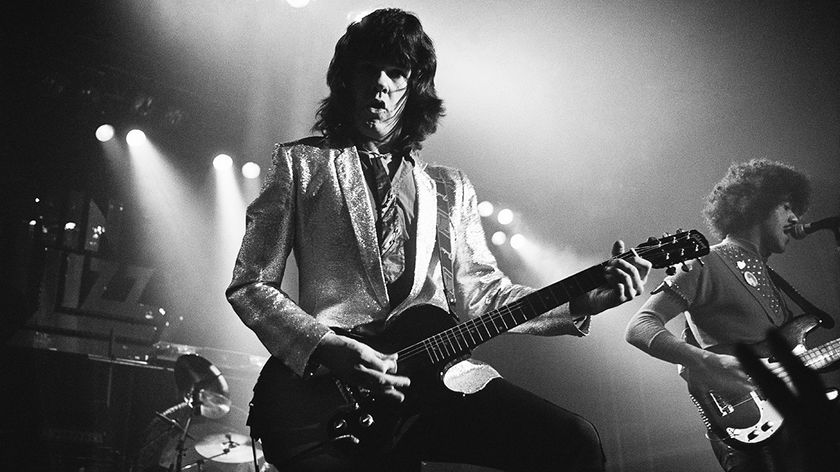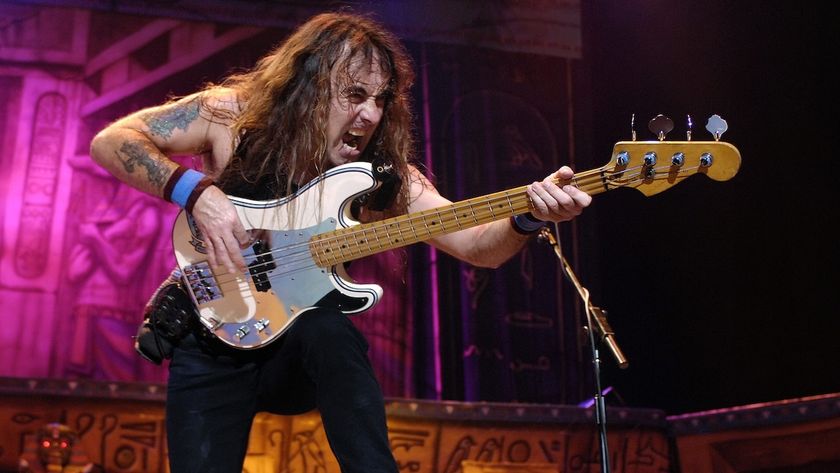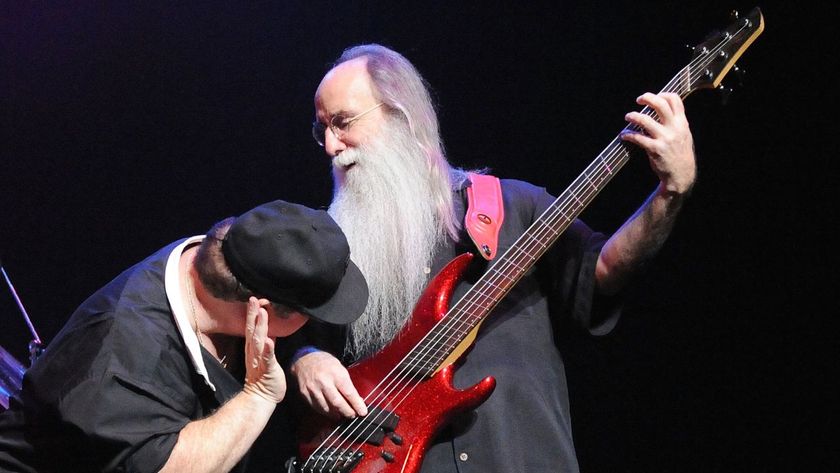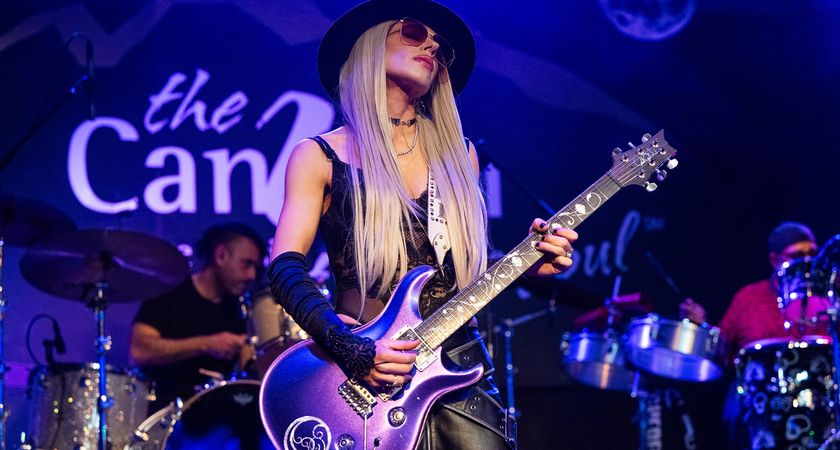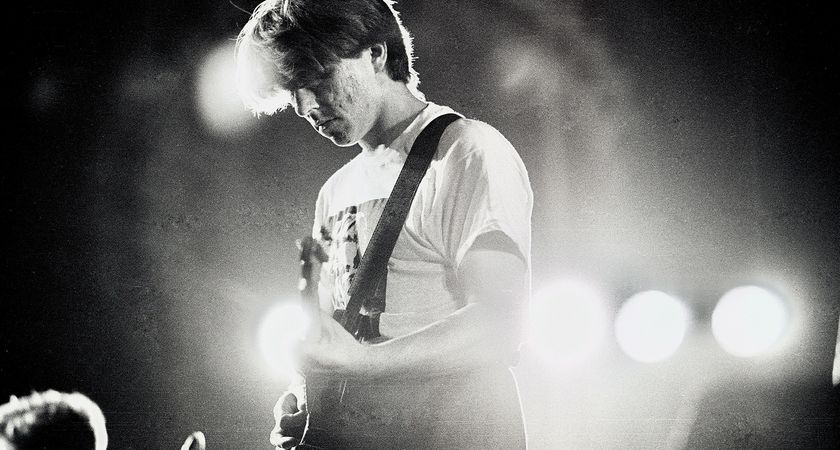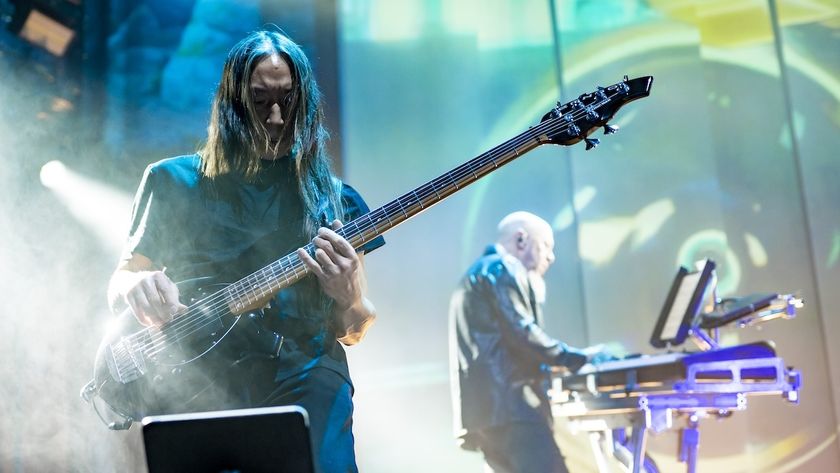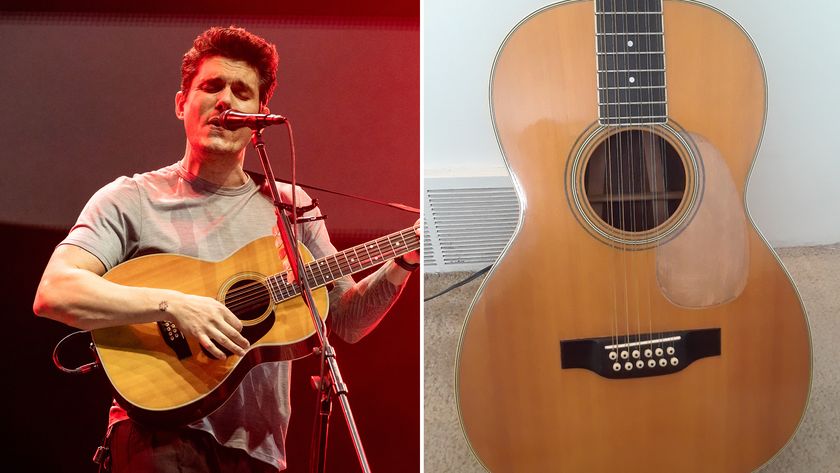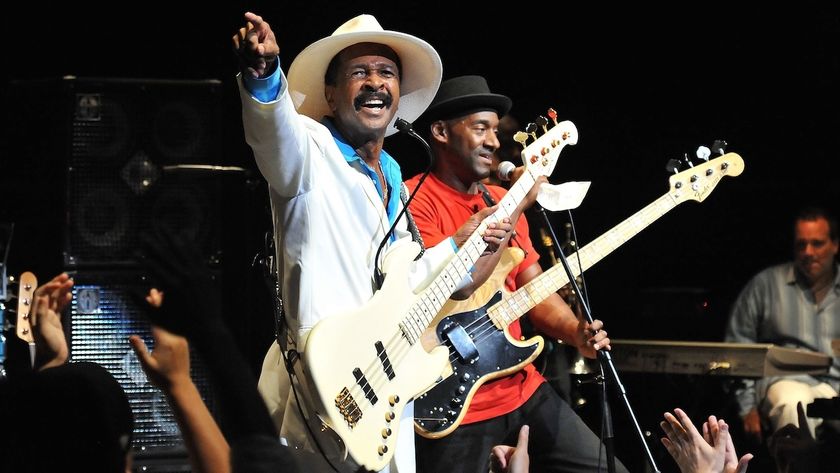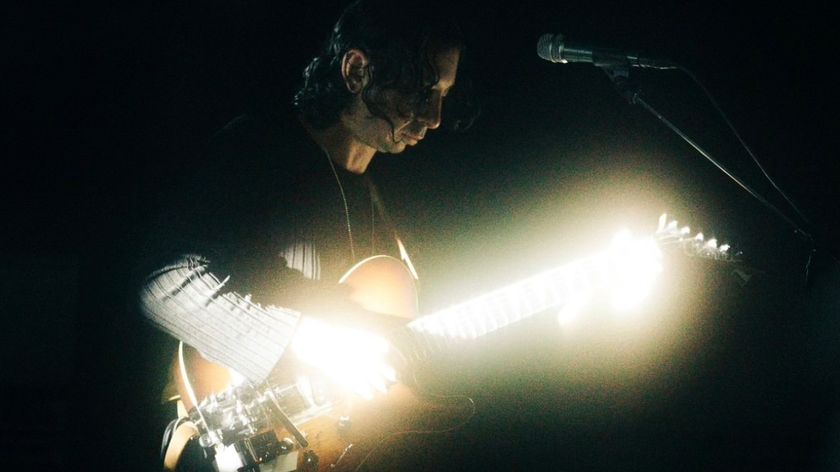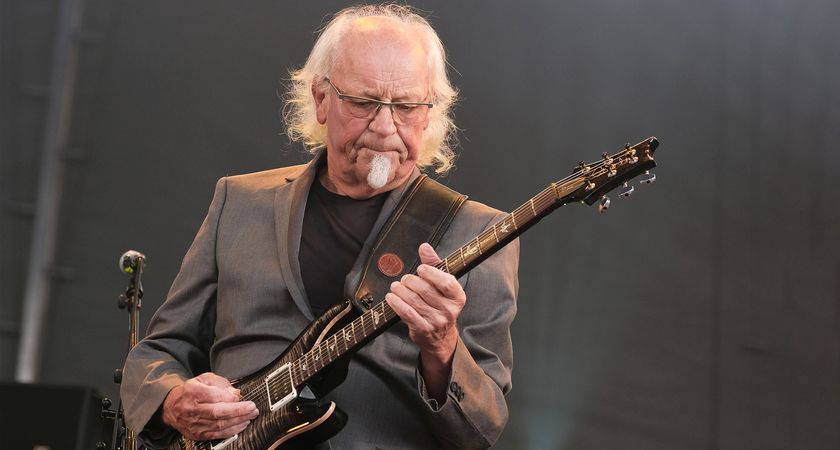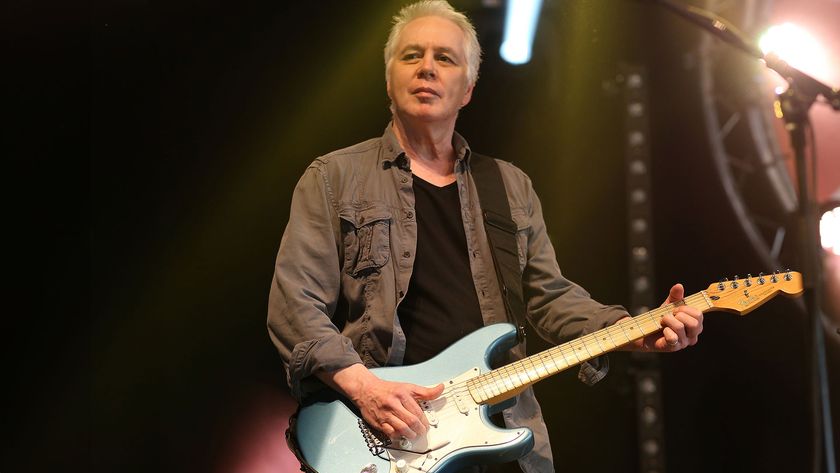David Crosby Talks Guitars, CSN&Y, Byrds and Working with David Gilmour

He's one-fourth of Crosby, Stills, Nash & Young and owns a sweet collection of rare and vintage axes. But what Guitar World readers really want to know is...
What’s the key to great harmony? — Willy Latham
Listen to Phil Everly. I don’t think there’s any question that the first time I got hooked into harmony singing it was listening to “[All I Have to Do Is] Dream” by the Everly Brothers.
That’s where it starts, but then you have to go to a lot of places besides that. Listen to classical music, listen to Bach. It’ll never hurt you, and if you really listen, it’ll help you a lot. Listen to the first record by the Bulgarian State Television Female Vocal Choir from 1966, Music of Bulgaria: The Ensemble of the Bulgarian Republic, under the direction of Philip Koutev. It is beyond-belief good. Those little Bulgarian housewives can sing rings around everybody. [Graham] Nash and I would credit them with changing our lives. It will rot your brain.
You recorded and toured with David Gilmour a few years ago. How did that connection come about? — Chris Thumann
David knew Graham, and he came to our Crosby & Nash show in London a couple of times and liked our harmonies and our way of going at it, and he asked us to sing on [his 2006 solo album] On An Island. In the process, we got to be pretty close friends. He asked us to sing at his concert in London. We ended up doing, like, eight shows, just singing the songs we sang on the record. I think Fender should erect a monument to Gilmour. He has this tone, and it’s not gizmos. It’s his touch.
Your new album, Croz, is your first solo record in 20 years. Why the long wait? — James Fitze
Get The Pick Newsletter
All the latest guitar news, interviews, lessons, reviews, deals and more, direct to your inbox!
You’re only looking at solo albums. In between, I did a double album with Graham Nash [2004’s Crosby Nash]. I was working on a covers album with CSN. And we’ve all been working on the CSNY 74 thing for a couple of years [a forthcoming collection of performances from the band’s 1974 tour].
When you hear it, you’re not going to freaking believe it. So I’ve been working on other stuff; I just haven’t done a solo record. I was writing so much with my son, James Raymond, who’s a brilliant writer. We were both having a very good streak of writing on our own, together and with [guitarist] Marcus Eaton. The songs are the key to the entire thing. Do you have a real song? Can you sit down and sing it to somebody? Can you make them feel something? If I have songs, I want to make a record. So we both had these songs. We didn’t really have a choice.
How the hell does your voice sound the same after all these decades? — Lisa Rogers
I don’t really understand it, although I didn’t smoke cigarettes. I may’ve been herbally enhanced once or twice, and I went through hard drugs and all that stuff. I don’t know how I have a throat left. [laughs] But there it is, and as long as it still works, I’m going to work it. I’m pretty happy about how it sounds, but a lot has to do with how my son recorded it on the new album.
I read about your guitar collection in Guitar Aficionado magazine. What do you look for when buying guitars, and which one is your favorite? — Gil Pender
It’s a complex thing. I don’t collect the way other people do. Some people collect rare guitars, like, “I have a ’54 Strat worth $50,000.” And I don’t collect the way Nash does. Nash has Duane Allman’s guitar and Johnny Cash’s guitar. I bought guitars because they sounded good. I played them, they sounded unbelievably good, and I couldn’t resist. I probably have the best set of acoustic 12-string guitars in the world.
But I’ve gone through an odd change about it. I have a strong room in my house where I keep them. When I go in there and play them, I feel kind of bad that they’re hanging on the wall when they can be in the hands of someone who is desperate to play a guitar that good. I keep getting the urge to give them away. I gave a Collings dreadnought to a young guitar player in the Valley where I live, because he didn’t have a good acoustic and he’s a terrific player. I might do more of that. Or I’ll auction off the whole batch when I run out of money.
What inspired you to play a Gretsch Tennessean with the Byrds? — Clarence LeBlanc
That’s what George Harrison had. And he had that Rickenbacker [360/12], which is what Roger McGuinn got. We went straight for their shit. [laughs] We said, “Okay, that’s how you do it!” And you know, once you play a Gretsch, you find out there are tricks to it. Take a Gretsch and roll the volume all the way up on the guitar and then control it from the amp. Then you get that crunch that Gretsch guitars have got. But they won’t give it to you unless you turn the volume all the way up and control your volume from a pedal or the amp.
Are you always writing new music? — Lucy Sciancalepore
Yes. As a matter of fact, I wrote one of my best songs right after we mastered the new album. How fucked up is that? [laughs] Last night, I played it to an audience for the first time—and they loved it! I’m thrilled and excited, stoked and stuff.
Did you write any CSN songs in Joni Mitchell’s kitchen? — Jody Porter (Fountains of Wayne)
I know we sang a lot there. That’s where we put Crosby, Stills & Nash together. Stephen and I had been singing and we were there with Graham. We sang, “In the morning when you rise” [from “You Don’t Have to Cry”], and Graham said, “Would you sing that again?” So we sang it again.
And he said, “That’s fantastic. Would you do it one more time?” We sang it a third time, and he put the top harmony on it. Right then, we knew exactly what we were going to be doing for a long time. There wasn’t any question. We have very different voices and some kind of weird chemistry. And it definitely was in Joni’s kitchen. Stephen is fiercely sure it happened at Cass Elliot’s, but it didn’t.
You’re friendly with everyone from CSNY, but do you have a relationship with the other Byrds, especially since they kicked you out of the band? — Elijah Hunt
I have a very good relationship with [bassist/guitarist] Chris Hillman. He lives not too far me, so we have dinner together sometimes. I’ll go out to hear him and Herb Pedersen play country music, because they are the real deal. I have a friendly relationship with Roger [McGuinn], and the last message I got from him was very friendly; he said he liked the new record.
Roger doesn’t want to be in a band. He wants to be folkie and work by himself, and that’s frustrating to me and Chris, because we know we could make really good music together. There’s not even a question. I have a tremendous amount of respect for Roger. Half of what the Byrds had was Roger and his ability to arrange and play and his ability to know how to translate a song from the demo of “Mr. Tambourine Man” into what it became. If you heard the demo, you’d break the record. [laughs] It’s terrible! Roger translated it into a brilliant pop record.
What happened to the album Crosby, Stills & Nash were recording with producer Rick Rubin just a few years ago? — Gregory Swedberg
Trying to make an album is a chemistry between people, and the chemistry wasn’t there. And I’m not saying this to slight Rick. He’s a talented guy, and when he does have good chemistry with the people he’s working with, he does good work. But he didn’t have it with us. We didn’t get along.
We didn’t have the same things in mind; we didn’t have the same way of going about things. And you have to understand all those records that were huge that we did, we produced those. We worked with Rick for months and got nothing we thought was worth anything. Then, just to check, we enlisted Jackson Browne’s Groove Masters studio, and we cut, like, five things in four days. So I have to think we can do it our own way and do it pretty easily! We’ll probably finish that record.
Do you have a favorite chord, one that makes you feel comfortable like a warm blanket? — Vin Downes
Yes. I have a couple of them. The one I can describe to you is Em9-7. But I have another one that’s in a different tuning. I can play it for you, but I can’t tell you what it is!
Do you practice or play guitar around the house on a regular basis? — Frank Little
I try to do it every day. The muse is out there, and it will come by your house if you leave the door open. But you have to open the door! Pick up the guitar and make space for it to happen. And then it will happen—if it’s gonna happen. But you have to pick up the ax and open the door.
What inspired your open tunings, and can you share a few of them? — Tim Goodwin
I use a lot of tunings because I listen to a lot of jazz. I hear the chords [jazz pianist] McCoy Tyner had to play for John Coltrane. He was asked to play really rich, thick tone-cluster kinds of chords, which he did brilliantly. I would listen to those chords and say, “I want to play that, but I’m not good enough.”
So then I grab my guitar and I can get versions of the chords that were different from what everybody else was playing. And it works. That’s where I got “Déjà Vu,” “Guinnevere,” “Compass” and “Climber.” They are all in really strange tunings because they give me another sound that expands the envelope, gives you more to work with—if you’re willing to take up a whole new set of chords. There is that minor detail. [laughs] You tune the low E to a D and then your D chord sounds really fantastic. That’s the beginning of the slippery slope!

Damian is Editor-in-Chief of Guitar World magazine. In past lives, he was GW’s managing editor and online managing editor. He's written liner notes for major-label releases, including Stevie Ray Vaughan's 'The Complete Epic Recordings Collection' (Sony Legacy) and has interviewed everyone from Yngwie Malmsteen to Kevin Bacon (with a few memorable Eric Clapton chats thrown into the mix). Damian, a former member of Brooklyn's The Gas House Gorillas, was the sole guitarist in Mister Neutron, a trio that toured the U.S. and released three albums. He now plays in two NYC-area bands.
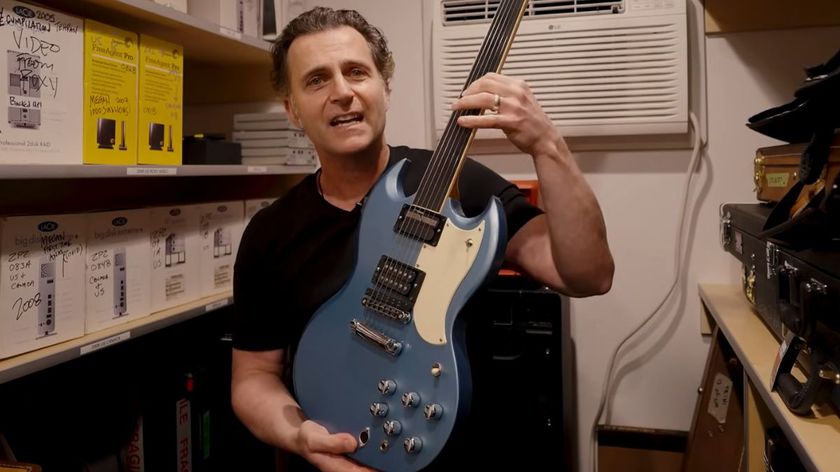
“One of the coolest guitars I own”: Dweezil Zappa has some absolutely wild guitars in his vault – but his insane one-of-one fretless Gibson SG is one of his favorites
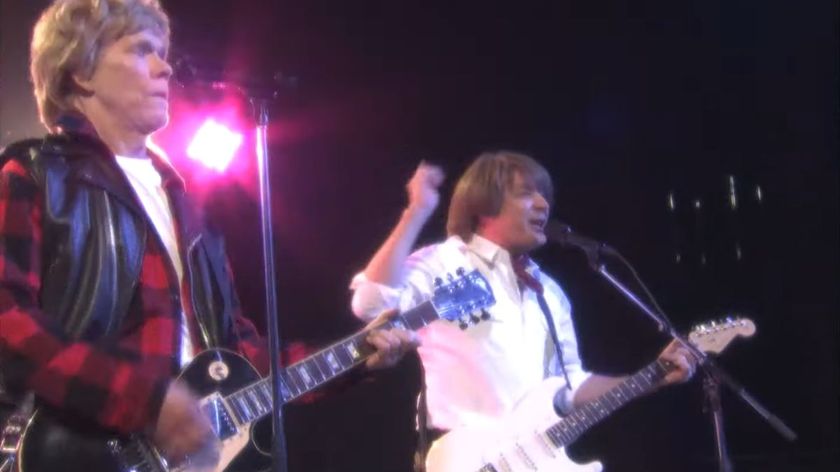
“Maybe we could buy a 12-string and have it sawed in two”: Kevin Bacon and Jimmy Fallon rewrite Bryan Adams’ Summer of ’69 – and make it all about six-strings
